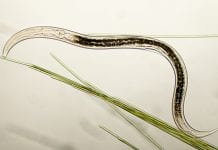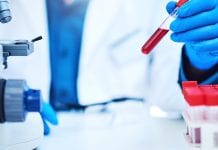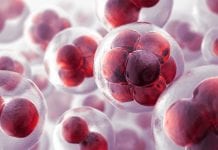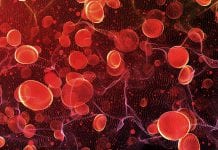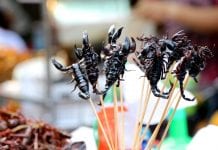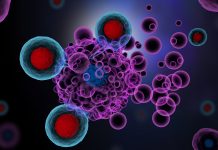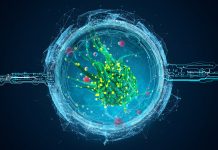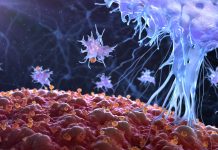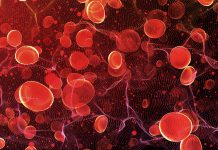cell and gene therapy Related News
Ancient worm reveals how to destroy toxic cells in Huntington’s disease
Insights from a new study found that microRNAs are important in controlling protein aggregates.
In the study scientists have discovered that an ancient worm could...
Gene therapy trial offers hope for Sickle Cell Disease
Sickle Cell Disease is a serious and debilitating genetic disease caused by a mutation in the β-globin gene and there are currently no known...
Measuring stressed cells to understand the development of disease
When cells are stressed, they initiate a complex and precisely regulated response to prevent permanent damage.
Researchers from Goethe University have developed a new protoeomics...
Artificial Intelligence has potential to transform gene therapy
New research demonstrates the power of a comprehensive machine-guided approach to engineer improved capsids for gene therapy delivery.
The research, Comprehensive AAV capsid fitness landscape...
Gene patent reform in the US and the knock-on effect in Europe
Rosie McDowell, an attorney at EIP shares her thoughts on gene patent reform and the potential impact it might have across the globe.
This year...
C difficile infection: The search for new Clostridioides difficile vaccine
University of Exeter researchers have made a breakthrough in the quest for a new vaccine for killer hospital bug Clostridioides difficile (C difficile infection).
The...
New viral vector for improved gene therapy in sickle cell disease created
Researchers at the National Institutes of Health (NIH) have developed a new and improved viral vector – a virus-based vehicle that delivers therapeutic genes...
Scorpion toxin targeting ‘wasabi receptor’ could help solve mystery of chronic pain
Researchers found a scorpion toxin targeting the 'wasabi receptor', a chemical-sensing protein located in nerve cells responsible for the sinus-jolting sting of wasabi.
At UC...
Using immunotherapy drugs to tackle treatment-resistant lymphoma
Explore how Mount Sinai researchers have made immunotherapy drugs work for treatment-resistant lymphoma for the first time.
Mount Sinai researchers have developed a way to...
Therapeutic targets identified for deadly non-small-cell lung carcinomas
Salk scientists discover a pair of enzymes that drive non-small-cell lung carcinomas, a form of deadly lung cancer, by promoting inflammation.
85% of deadly lung...
Automated cell counters will witness rigorous demand with high prevalence of aids and cancers
Automated cell counters are electronic devices that can automatically count the cells of humans, animals, plants, as well as cells of other origins -...
Cell therapy research: trials in B-cell malignancies and patient-centric approach to CAR T therapy
Kite, a Gilead Company, are to present latest cell therapy research at 24th Congress of the European Haematology Association (EHA) looking at B-cell malignancies...
Designing proteins just got easier with the specialised knowledge of video gamers
By playing the computer game Foldit, citizen scientists can now help protein researchers create novel vaccines, cancer therapies and more – is this a...
T-cells can wreak havoc in those with autoimmune disorders – Could research change this?
Immunologists from The University of Texas, using a new imaging technique, may have discovered a way T-cells could be manipulated to combat autoimmune disorders.
For...
Find out how cells that produce insulin could change the function in diabetes
A new study using only materials derived from humans has revealed that cells that produce insulin can change their function in diabetes - and...
Living with Transfusion-Dependent β-Thalassaemia (TDT)
In its most severe form and without adequate care, thalassaemia can be lethal in early childhood, and although Annual International Thalassaemia Day has come...
Newly uncovered gene mutation has the ability to reduce fear and anxiety
Have you ever experienced awkward social interaction? Do you find that you experience fear and anxiety often? Well researchers may have found a new...
Jellyfish antidote: Is CRISPR genome editing the solution?
Using CRISPR genome editing, researchers at the University of Sydney, Australia, may have discovered a jellyfish antidote for the most venomous creature on earth.
The...
Priorities for breast cancer resources questioned after global HER2 testing survey
A global survey of HER2 testing has raised questions about how resources should be spent on potentially lifesaving HER2 targeted therapies for breast cancer,...
What do you know about olfactory receptors and smelling with your tongue?
Smelling with your tongue may be a real thing, but can identification of functional olfactory receptors in human taste cells open doors to new...


